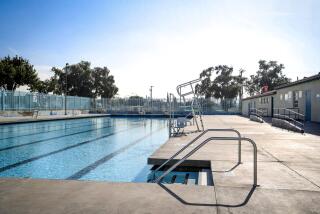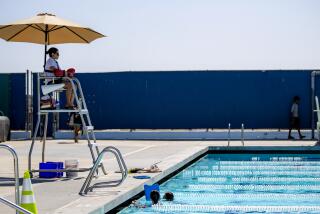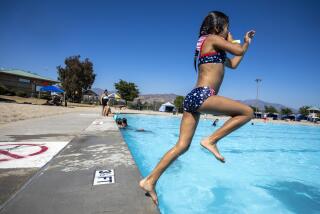Drowning and Parents’ Duty
- Share via
Re “No Lifeguard to Save Boy,” July 25:
Having lifeguards at private pools is not feasible.
We live in a community of 555 homes with four pools. They are open from 6 a.m. to 10 p.m. seven days a week. There is no way that our association could afford to pay for a certified lifeguard for those hours.
At our pools a child younger than 14 is not allowed to be in the pool area without an adult supervising.
Parents are responsible for their children. Not the association, not a lifeguard, the parent or guardian. Accidents are a terrible tragedy, but they are not a reason to overreact.
CARL REINERT
DIANNE HOFFMAN
Westminster
*
I was saddened by the tragic death of 4-year-old Alexander Vertun, who died at the Coto de Caza community pool, and angry at your all-too-simple solution of requiring lifeguards at every public pool.
The tone of the reporting was obviously to question a law that states that swimming pool operators do not need to hire lifeguards as long as they post a sign cautioning that no guard is on duty.
No doubt the parents will be tormented by Alexander’s death. Every parent should assess a child’s environment and take precautions for that child’s safety. What happened in this case?
Your story suggests that the panacea is the parents’ abdication of responsibility to another source, namely lifeguards. While it may seem that a lifeguard is the solution, that is simply not the case. Responsible and alert parents are the first line of defense.
The community association of Coto must decide what is best for their community pool. If it wishes to invest in the additional layer of safety by hiring lifeguards, that’s its choice.
However, I would trust parental oversight more than governmental intervention at any opportunity because when it comes down to it, a parent’s eagle eye is far superior to the wave of a bureaucratic wand.
CARL E. OSSIPOFF
Newport Beach
More to Read
Sign up for Essential California
The most important California stories and recommendations in your inbox every morning.
You may occasionally receive promotional content from the Los Angeles Times.










